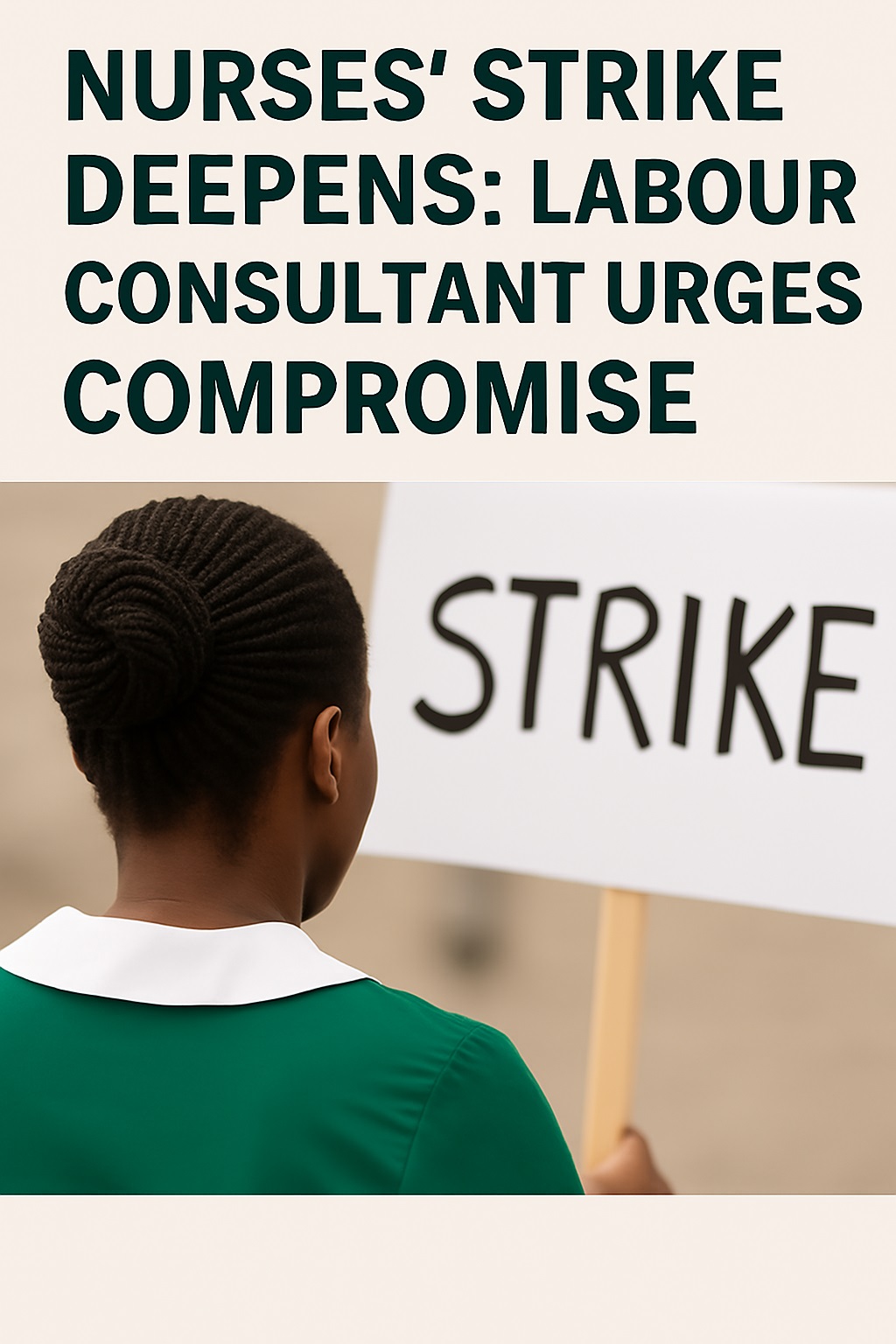Nurses’ Strike Deepens: Labour Consultant Urges Compromise

The ongoing strike by the Ghana Registered Nurses and Midwives Association (GRNMA) has entered its second week, causing widespread disruptions in healthcare delivery across the country. The strike, which began on June 2, 2025, stems from unresolved demands regarding the implementation of the 2024 Collective Agreement, which includes improved salaries, allowances, and working conditions.
Labour Consultant Calls for Dialogue
Labour consultant Austin Gamey has urged both the government and the striking nurses to soften their stances and return to the negotiation table. Speaking on TV3’s Ghana Tonight, Gamey warned that the impasse risks endangering patients and eroding trust in the health system. He acknowledged that the nurses have a genuine case but emphasized that their approach must be tempered with concern for patient welfare.
Gamey highlighted the role of the National Labour Commission (NLC) in resolving such disputes, stating that as an essential service, the matter should be settled within 72 hours. He explained that if voluntary mediation fails, the NLC has the authority to invoke compulsory arbitration, which would be legally binding.
Government’s Position and Public Reaction
The government, through the Ministry of Health, has expressed regret over the strike’s impact but insists that economic constraints prevent the immediate fulfillment of all demands. The Minister of Health, Kwabena Mintah Akandoh, reaffirmed the government’s commitment to dialogue, urging nurses to return to work while negotiations continue.
Meanwhile, legal practitioner Maurice Ampaw has criticized the government’s handling of the crisis, arguing that both patients and healthcare workers are suffering. He warned that recalling retired nurses to fill the gap left by striking workers is not a sustainable solution and urged authorities to meet the nurses at least halfway in negotiations.
Impact on Healthcare Services
Hospitals and clinics nationwide are experiencing severe disruptions, with reports of delayed treatments and overwhelmed emergency units. The strike has particularly affected public sector health facilities, where nurses play a crucial role in patient care. Some hospitals have resorted to limited operations, while others have redirected patients to private healthcare providers.
As the strike continues, pressure mounts on both the government and the GRNMA to find a resolution. While labour experts advocate for compromise and structured negotiations, nurses remain firm in their demands for fair compensation and improved working conditions. The coming days will determine whether dialogue prevails or if the healthcare crisis deepens further.



0 Comments
No comments yet, be the first to comment